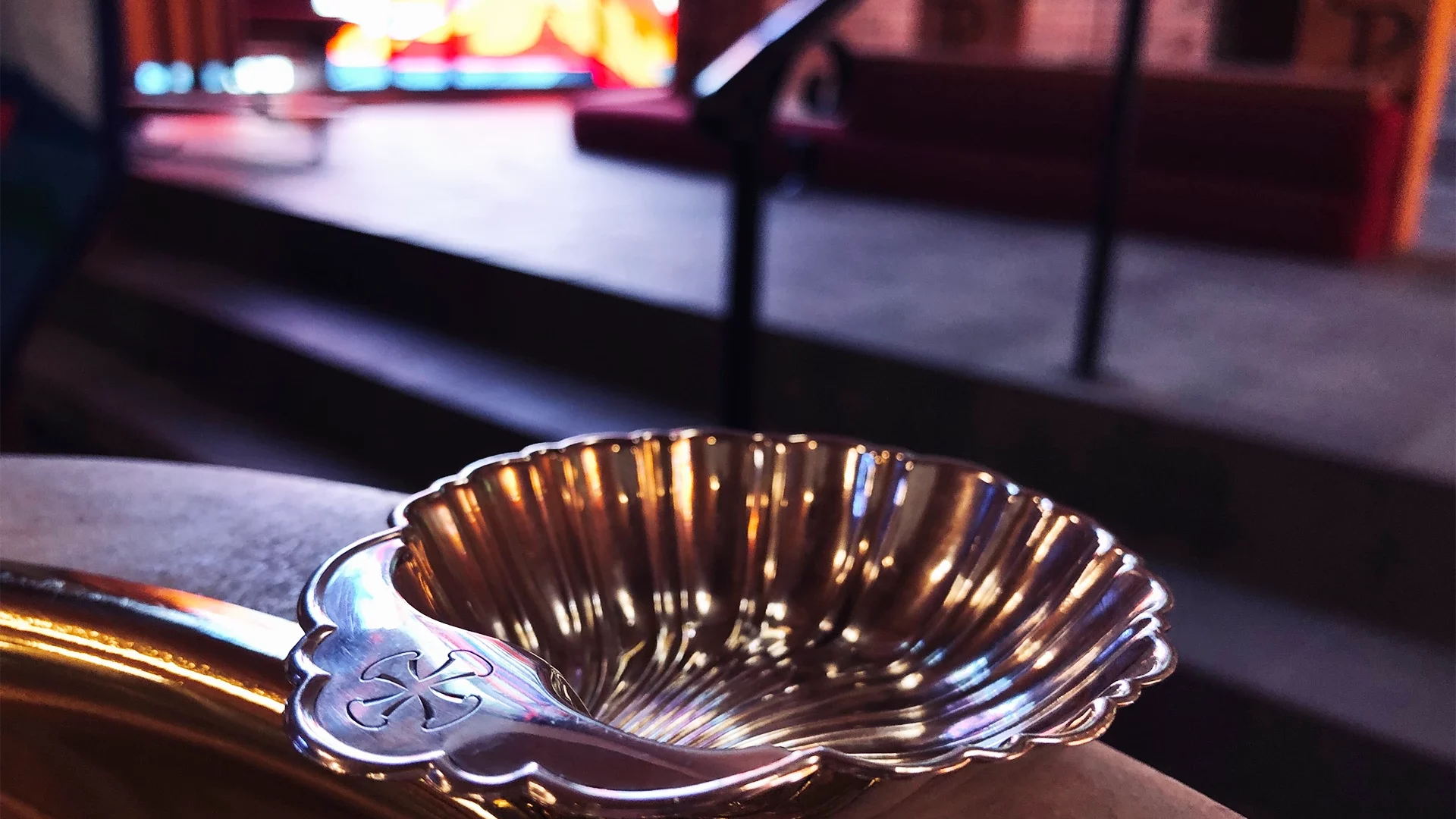Baptism is a sacrament that is not repeated, once an individual has been validly baptized. For this reason, he or she would not be baptized again upon reception into full communion with the Church (see CIC 845, 864). When a person seeks to become a Catholic, one of the Church’s responsibilities is to determine whether or not the individual has been validly baptized. Because there are different understandings of and ways to administer Baptism among Christian communions, and a variety of record-keeping practices, the Church has a responsibility to determine that an individual who believes that he or she has been baptized was, in fact, validly baptized.
What makes Baptism valid?
The Catholic Church recognizes the validity of Baptism by other Christian ecclesial communities when the proper matter and form are used and when both the baptizing minister and the person being baptized have the proper intention (CIC 869 § 2). Water is poured or the one or be baptized is immersed in water (the matter) (CIC 854; GI 18, 22), and the minister says, “I baptize you in the name of the Father, and of the Son, and of the Holy Spirit” (the form) (CIC 850; GI 23). The minister’s intention simply “to baptize” and the recipient’s intention (or, if an infant or child, his or her parents’ and godparents’ intention in his or her name), simply “to be baptized” is sufficient to meet this test, even if none of the parties had a full theological understanding of the sacrament of Baptism.
When an inquirer states that he or she has been baptized, the first step in determining if the Baptism is considered valid is to ask in what ecclesial community the Baptism took place. The diocese should be able to provide a list of ecclesial communities whose Baptisms are considered valid and invalid. If the Baptism is considered invalid, then this would need to be explained to the inquirer and he or she would participate in the Christian initiation process as an unbaptized person.
If the Baptism took place in an ecclesial community which the Catholic Church considers to have valid Baptisms, then the next step is to obtain proof that the Baptism took place. The ecclesial community in which the Baptism took place should be contacted to request a Baptismal certificate. This Baptismal certificate should contain as much of the following information as possible:
- full name of the person baptized
- parents’ names (including mother’s maiden name)
- godparents’, sponsors’, or witnesses’ names
- where the Baptism took place (name of parish or specific ecclesial community; city, town, or other local place name; and country)
- the name of the minister of Baptism
- the matter and form
Many records may not be this complete.
If a formal record of the Baptism cannot be obtained from the ecclesial community, or the inquirer does not know where the Baptism happened, there are several options for obtaining proof that the Baptism occurred. The inquirer’s sworn testimony is sufficient if he or she was an adult when baptized (see CIC 876). If the inquirer was baptized as an infant or child, testimony from an “unexceptionable witness” to the Baptism, such as the baptizing minister, parents, godparents or sponsors, or relatives, is sufficient (see CIC 876). A Baptismal record is then created on the basis of the testimony or affidavit.
The RCIA leader should initiate the effort to determine the validity of Baptism as early in the process as possible, almost always prior to the celebration of the Rites of Acceptance and Welcoming. Which Rite the inquirer would celebrate would be determined by whether or not he or she had been validly baptized.
Baptism in the Eastern Christian churches
Upon asking questions to determine the religious background of an inquirer, the RCIA leader may encounter someone who is Eastern Christian, or has one or both parents from that tradition – one of the particular churches usually styled as “Greek Orthodox,” “Russian Orthodox,” and the like. These individuals should not be confused with Catholics who belong to one of the uniate Eastern Rites and are thus already fully within the Catholic Church. The Catholic Church recognizes as valid all seven sacraments conferred within the Eastern Christian tradition. If the inquirer was baptized as an infant, child, or adult in this tradition, he or she, in almost all cases, has already received all the sacraments of initiation, which would have been conferred in a single ceremony. In the case of an Eastern Christian (Orthodox) who desires to become Catholic, no liturgical rite is required, but simply a profession of Catholic faith.
The above can be found on pages 187-188 of the RCIA Leader’s Manual published by the Association for Catechumenal Ministry and distributed by Liturgy Training Publications.



